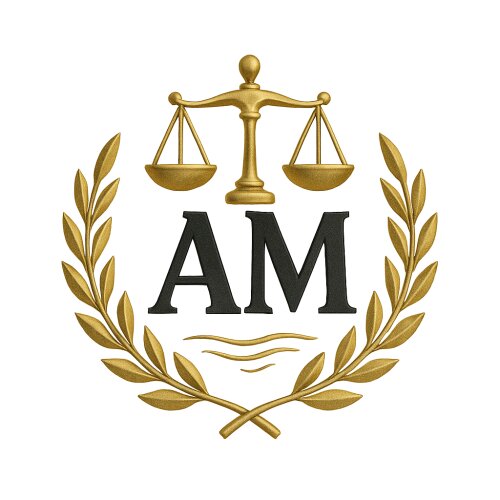Best Equity Capital Markets Lawyers in Mława
Share your needs with us, get contacted by law firms.
Free. Takes 2 min.
List of the best lawyers in Mława, Poland
About Equity Capital Markets Law in Mława, Poland
Equity Capital Markets - commonly called ECM - covers the legal rules and market practices that govern raising equity capital, trading shares, and managing shareholder relations. In Mława, a regional town in the Masovian Voivodeship, ECM activity is usually carried out by local companies - often small and medium sized enterprises - that seek financing either through private placements, equity crowdfunding, or by preparing to access national markets such as the Warsaw Stock Exchange or alternative trading platforms. Substantive regulation is national and EU based, but local administrative and judicial steps - for example company registration, notarial formalities, and local tax matters - are handled in and around Mława.
Why You May Need a Lawyer
A lawyer who specializes in Equity Capital Markets can help you avoid costly mistakes and meet formal requirements. Common situations where legal help is needed include:
- Structuring an equity raise - choosing between private placement, rights issue, public offering, convertible instruments, or crowdinvesting.
- Drafting and reviewing shareholder agreements, subscription agreements, and term sheets.
- Preparing a prospectus or offering memorandum and ensuring compliance with EU and Polish prospectus rules and securities regulation.
- Handling corporate governance changes - amending articles of association, conducting shareholder resolutions, and managing pre-emption rights.
- Completing formal steps - notarial deeds, filings with the National Court Register (KRS), and registrations with depositories.
- Advising on disclosure obligations, Market Abuse Regulation compliance, insider lists, and reporting obligations under Polish Financial Supervision Authority rules.
- Coordinating due diligence, tax planning, and anti-money laundering checks for investors and issuers.
Local Laws Overview
Key legal sources and practical points relevant for Equity Capital Markets in Mława are:
- Commercial Companies Code - the primary domestic law governing company forms, share capital, shareholder rights, corporate actions, and statutory formalities for both limited liability companies (sp. z o.o.) and joint stock companies (S.A.).
- Prospectus and public offering rules - public offers of securities in Poland are subject to EU and Polish prospectus rules. Public offers typically require a prospectus reviewed or approved by the Polish Financial Supervision Authority - KNF - unless a statutory exemption applies.
- Market Abuse Regulation - EU rules implemented in Poland that regulate insider trading, unlawful disclosure, and market manipulation. They apply predominantly to securities admitted to trading on regulated markets and often to offers targeting a wide investor base.
- Polish Financial Supervision Authority - KNF - supervises public offerings, regulated markets, and entities providing investment services. Issuers and intermediaries must comply with KNF guidance and reporting requirements.
- National Court Register - KRS - company changes, share capital increases, and corporate acts typically require filings with the KRS. Many corporate actions require notarization before filing.
- Krajowy Depozyt Papierów Wartościowych - KDPW - the national securities depository that handles registration and settlement for dematerialized securities when companies access public markets.
- Anti-Money Laundering and Counter Terrorist Financing rules - investor identification and AML checks apply to intermediaries and sometimes to issuers when accepting funds from investors.
- Tax rules - equity transactions have tax consequences for the company and investors. Capital gains, withholding, and corporate tax implications should be assessed with a tax advisor familiar with Polish tax law.
Frequently Asked Questions
What is the difference between a private placement and a public offering?
A private placement is an equity sale to a limited number of identified investors under negotiated terms and typically does not require a prospectus. A public offering targets a wider public audience and usually requires a prospectus and additional disclosure and regulatory approvals. The specific thresholds and exemptions are set out in EU and Polish law.
Can a small company in Mława raise money from investors without a prospectus?
Yes - many small companies use private placements, crowdinvesting platforms or rely on statutory exemptions that remove the prospectus requirement. Whether an exemption applies depends on the offer size, the number of investors, and the type of investors. A lawyer can help determine which route is available.
Do I need a notary to change the share capital of my company?
Yes for most companies. Changes to the articles of association or share capital increases usually require a notarial deed. After notarization you must file the change with the National Court Register - KRS - for it to be effective against third parties.
What local filings are required after completing an equity raise?
Typical filings include updates to the KRS, tax notifications to the local tax office, changes to shareholder records, and for listed or dematerialized securities, registration with the KDPW. Additional reporting to the KNF may be required for public offerings.
How does investor protection work in Poland?
Investor protection is provided by disclosure obligations for offers, prospectus rules, rules on conflicts of interest, and market conduct rules such as Market Abuse Regulation. Professional investor classifications and suitability rules also affect how offers are made.
Are there special rules for crowdfunding or online equity platforms?
Yes. Equity crowdfunding usually involves additional regulatory and platform obligations, including AML checks and investor limits for non-professional investors. Platforms often have their own compliance frameworks and may be regulated as financial intermediaries.
What happens if shareholders do not follow pre-emption rights?
Pre-emption rights allow existing shareholders to maintain their proportionate ownership on a new share issue. Ignoring these rights can lead to legal disputes, claims for annulment of the issue, or compensation. Share capital increases should follow statutory procedures and any pre-emption rules in the articles of association.
Do I need to notify the KNF if I plan to list on the Warsaw Stock Exchange?
Yes. Listing on a regulated market requires compliance with KNF requirements, submission of a prospectus in many cases, and compliance with exchange listing rules. Companies often work with legal and financial advisers experienced in public listings.
Who enforces securities laws in Poland?
The Polish Financial Supervision Authority - KNF - supervises conduct related to securities and capital markets. Courts and administrative bodies also apply and interpret the law. For market trading and settlement, the Warsaw Stock Exchange and KDPW play operational roles.
How much will it cost to get legal help for an equity transaction?
Cost depends on the complexity and type of transaction. Private placements are generally less expensive than public offerings, which may require prospectus preparation, audits, and extensive regulatory work. Ask for a written fee estimate and a scope of work before engaging counsel.
Additional Resources
Useful organizations and local bodies to consult while preparing for an equity transaction include:
- Polish Financial Supervision Authority - KNF - the national regulator for securities and financial markets.
- National Court Register - KRS - the register where company changes are filed.
- Krajowy Depozyt Papierów Wartościowych - KDPW - the national securities depository and settlement institution.
- Warsaw Stock Exchange - for information on listing requirements and market practice.
- Local tax office - Urząd Skarbowy - for tax treatment of transactions.
- Local municipal and county business support offices in Mława and Masovian Voivodeship - for administrative and business development support.
- Regional chambers of commerce and business associations - for networking and investor introductions.
- National Bar and local law firms experienced in corporate finance and capital markets - for legal representation and tailored advice.
Next Steps
If you need legal assistance with an equity capital markets matter in Mława, consider the following practical steps:
- Prepare basic documents - company articles of association, current shareholder register, recent financial statements, and any term sheets or investor proposals.
- Book an initial consultation with a lawyer experienced in ECM and corporate law. Request a clear engagement letter that outlines scope, fees, and timeline.
- Decide the appropriate financing route - private placement, crowdfunding, or public offering - with legal and financial advisors.
- Complete required corporate steps - shareholder approvals, notarial deeds, KRS filings, and AML/KYC preparations.
- If pursuing a public offering or listing, engage auditors, prepare or review the prospectus or offering memorandum, and coordinate filings with KNF and KDPW as needed.
- Maintain compliance after closing - update records, notify authorities, and follow disclosure obligations that may apply to your company and its new shareholders.
For tailored advice, contact a local ECM lawyer early in the process so you can structure the transaction correctly, manage regulatory risks, and protect your company and investors. This guide provides general information and does not replace professional legal advice.
Lawzana helps you find the best lawyers and law firms in Mława through a curated and pre-screened list of qualified legal professionals. Our platform offers rankings and detailed profiles of attorneys and law firms, allowing you to compare based on practice areas, including Equity Capital Markets, experience, and client feedback.
Each profile includes a description of the firm's areas of practice, client reviews, team members and partners, year of establishment, spoken languages, office locations, contact information, social media presence, and any published articles or resources. Most firms on our platform speak English and are experienced in both local and international legal matters.
Get a quote from top-rated law firms in Mława, Poland — quickly, securely, and without unnecessary hassle.
Disclaimer:
The information provided on this page is for general informational purposes only and does not constitute legal advice. While we strive to ensure the accuracy and relevance of the content, legal information may change over time, and interpretations of the law can vary. You should always consult with a qualified legal professional for advice specific to your situation.
We disclaim all liability for actions taken or not taken based on the content of this page. If you believe any information is incorrect or outdated, please contact us, and we will review and update it where appropriate.









